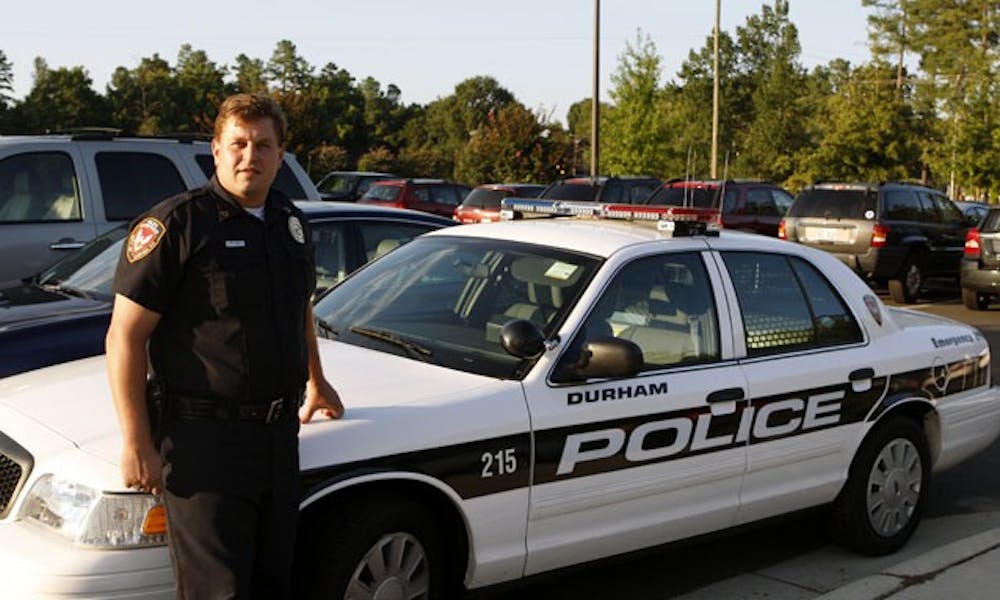With the threat of crime always a concern for Durham residents, The Durham Police Department has taken yet another step to prevent crime in the City by offering free home security surveys.
Master Officer Steve Hall is a police official who, at the request of residents of communities like the Old West Durham Neighborhood, visits people at their homes to advise them on Crime Prevention Through Environmental Design. This simple concept and similar measures that have been promoted to keep Durham safe have evolved into a means of uniting the local police with residents.
With the threat of crime always a concern for Durham residents, The Durham Police Department has taken yet another step to prevent crime in the City by offering free home security surveys.
Master Officer Steve Hall is a police official who, at the request of residents of communities like the Old West Durham Neighborhood, visits people at their homes to advise them on Crime Prevention Through Environmental Design. This simple concept and similar measures that have been promoted to keep Durham safe have evolved into a means of uniting the local police with residents.
“We come out to the house. We talk about certain things, that includes everything from lights to plants to locks to windows,” said Hall, who is commonly known as “Officer Steve” or simply, “Steve.”
This advice ranges from trimming trees so police have a clearer view from the street to engraving serial numbers on electronics, said John Schelp, president of the Old West Durham Neighborhood Association. Schelp, who made a point of informing OWDN residents of the survey in a recent e-mail, stressed the importance of having the service done.
“I had my survey done several years ago,” he said, adding that to this day, he still follows the advice the officer offered with regards to trimming plants and keeping areas well-lit.
But such services offer more than personalized crime prevention. Along with the Partners Against Crime program, which pushes for collaboration between residents and DPD officials, these programs have solidified the network of people participating in crime prevention programs.
“Neighbors can prevent crime,” Schelp said.
Hall, for example, would spread the word about a stolen car among 100 residents or so.
“It goes from 100 to 100,000,” all of whom are soon on the lookout for the car, he said. Hall noted that the PAC listserv facilitates such efforts as these as well as crime watch.
The home security surveys and other programs have also encouraged residents to build closer relationships with one another and with the local police force, Hall said.
“There’s not a day that goes by that I don’t get a few e-mails from residents saying, ‘Hey can you come over and join us at this party or this event?’ or ‘Can you find information about a certain break-in or do a certain meeting with us to find out about multiple break-ins?’” Hall said.
He noted that he and his colleagues have become acquainted with the citizens of the community on a face-to-face basis through security surveys, school programs and other events.
“It’s not unusual to just be walking in the mall and have a kid go, ‘Hey Officer Hall!’” Hall said. He added that the child’s parent often approaches him to relate an instance in which the child practiced “Stranger Danger” advice given by Hall.
For six years, Durham residents Mina Hampton and Frances Brown have been working with Citizens Observer Patrol, a similar collaborative program in which residents do rounds through the neighborhoods in patrol cars.
Programs such as these are examples of “good folks banding together against the bad folks,” Brown said.
Get The Chronicle straight to your inbox
Signup for our weekly newsletter. Cancel at any time.

